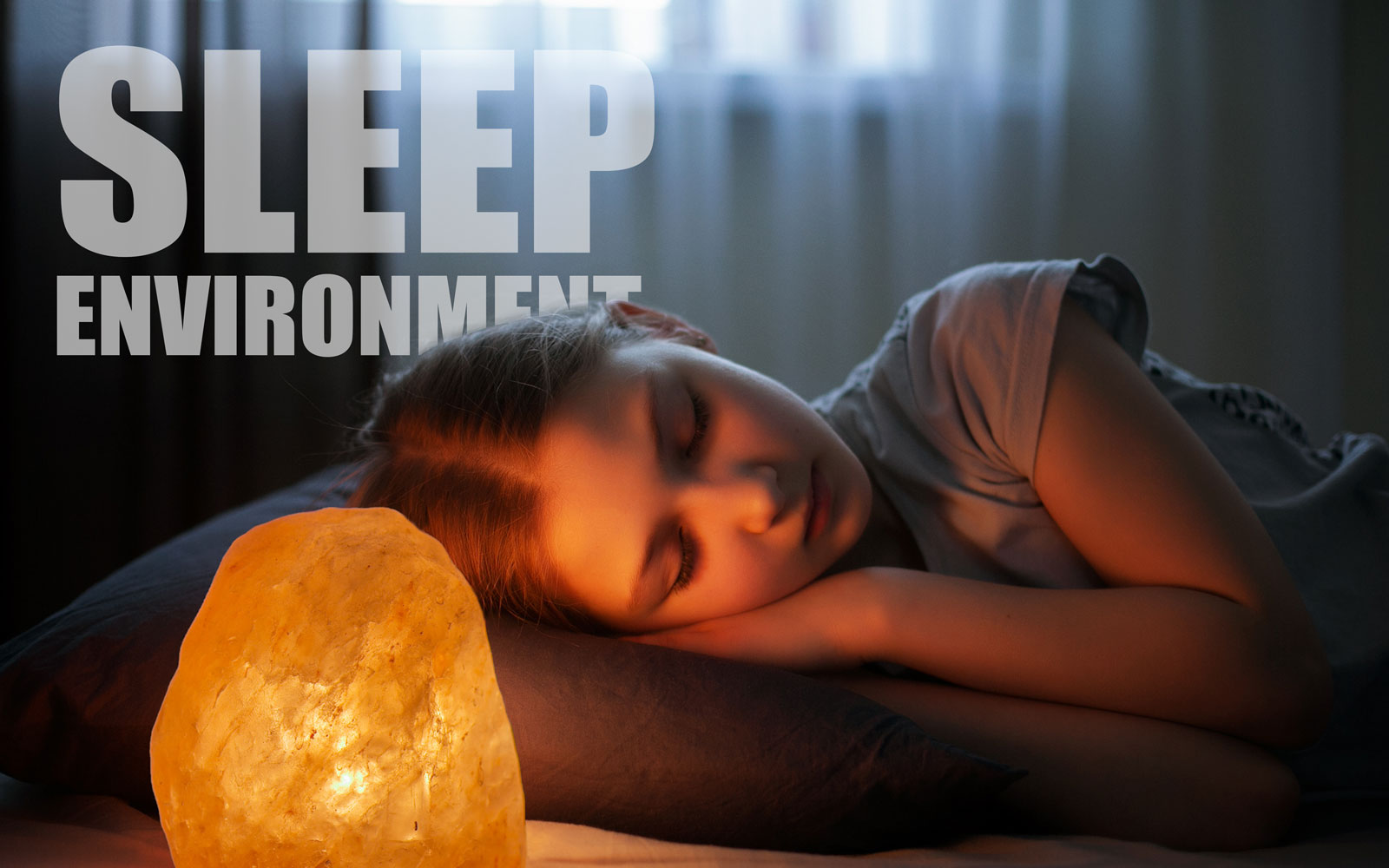
27 Apr SLEEP ENVIRONMENT
How can I sleep better?
The Sleep Environment
It’s getting late. Lights are out, your eyelids are getting heavier and you are getting comfortable in your bed, covered by a soft blanket. Eight hours of sleep are about to begin. But does your sleep have quality? Securing our sleep quality is equally important with making sure we are getting enough sleep every day. One very important factor is our sleep environment; the kingdom of our home; our bedroom.
The ideal sleeping environment is a place clean, quiet and dark, where we can relax away from the stress and the tension of the day. To achieve that, a few small but important changes in our environment are usually enough. Some important factors that we should consider while making those changes are the temperature, light and sound, humidity, bedding and the bedroom’s layout.
The ideal temperature for a good sleep is between 15.6ºC and 19.4ºC. Since our core body temperature naturally lowers before we fall asleep, the room’s temperature should match that. Of course, many people can sleep better in temperatures slightly lower or higher, so the best thing you can do is make small adjustments to the room’s temperature until you find the right one for you.
The lighting is equally important, since it affects our circadian rhythm, our internal body clock. Exposure to light can tell our body it’s time to wake up, while exposure to darkness triggers the release of melatonin, the sleep hormone. It is very important, therefore, to keep our bedroom dark. In the hours before bed, it is better to use a dim table or floor lamp rather than overhead lights. If you are having trouble waking up in the morning or the natural light can’t reach you, try turning on a small bedside lamp when your alarm goes off. This could help your body to wake up.
One other thing that can disturb our sleep is noise, coming either from inside or outside the house. If there are sounds that disturb us, we could use earplugs or insulated windows or even white noise machines. Additionally, we can seal cracks or gaps in windows and doors with a towel or an old T-shirt. That way we can keep the noise out of our room.
We shouldn’t, of course, forget about the importance of our mattress and bedding. After a thorough try out, we choose the ideal mattress and pillow for our body type, not too hard or too soft, and we make sure that the spine is kept aligned with the neck. Our bedding and nightwear should be made from soft, breathable materials that feel right on our skin. We should choose the right bedding for us, whether we need it heavier or lighter. The key here is that we can relax and sleep undisturbed.
Humidity can also affect our sleep. A home with a too high level of humidity can develop mold, which can trigger allergies or even cause new ones. We can adjust the room’s humidity using the appropriate device. Experts inform us that the ideal indoor relative humidity level falls between 30% and 50%.
If we do suffer from allergies, it is very likely that our sleep will be affected, therefore we should do whatever we can to reduce the symptoms. We avoid leaving the windows open during the day, so that dust and tree pollen stay away from our space, and we also keep our pets out of the bedroom and our bed. We also clean our bedroom regularly and change our sheets often. Every one or two weeks is usually ideal.
Additionally, try to use your bedroom only for sleeping, so clear the space of anything not relevant. Keep the room organised and clutter-free. Go for soft, pastel or neutral colours on the walls, such as light blue or grey. Avoid using bright colours that raise the heart rate and keep us from relaxing!
And as a final touch, you can always try aromatherapy. Smell is a vital sense, and there are certain fragrances that can help us fall asleep or, on the contrary, wake up. Try using essential oils, such as lavender, rose, and chamomile to relax before going to sleep, and peppermint or rosemary to increase alertness.
Incorporate in your routine any of the above suits you, and upgrade the quality of your sleep!



